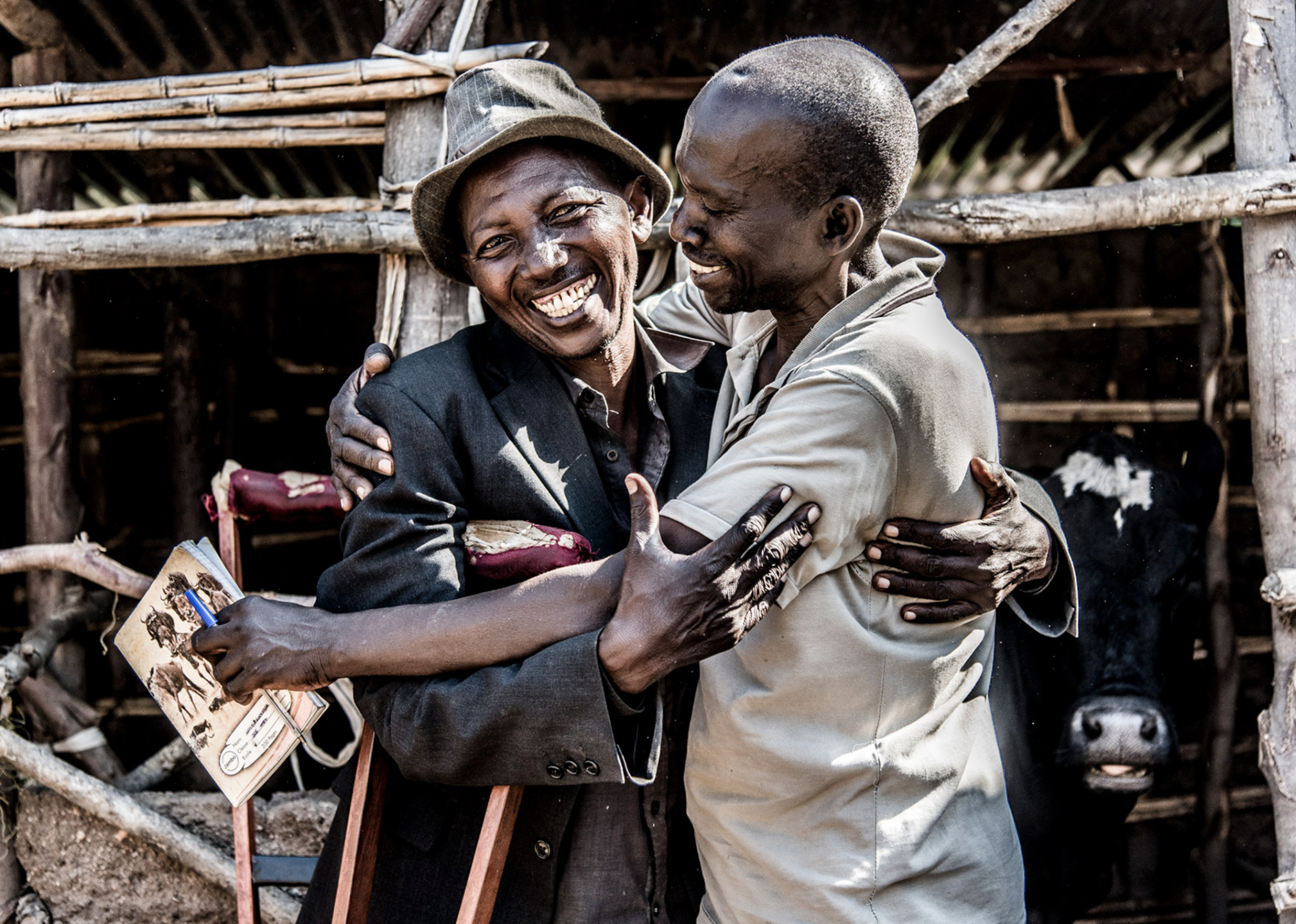
Transforming Communities in Rwanda
Transformation of communities after the 1994 genocide against the Tutsi in Rwanda have garnered much attention in lay and scholarly circles. Less noticed are local organizations such as Christian Action for Reconciliation and Social Action (CARSA) who tirelessly work alongside genocide survivors, perpetrators, and a new generation of young people to remember the events of 1994 and to collectively work towards not repeating history. Christophe Mbonyingabo, Executive Director and co-founder of CARSA, and Ezer struck up a conversation over coffee (always the case) in 2012 about how survivors and their direct perpetrators begin the process of reconciliation by raising a cow together…yes a cow. Sensing Ezer’s naive skepticism, Christophe posed a challenge to “test” the program Cows for Peace and predicted that “fancy research will show that I am right.” Thus began a partnership, collaboration, and a cherished friendship.
First, to empirically describe the scope of the problem, CARSA interviewed 448 survivors who lived in four randomly selected villages from five districts (yep, this was their first research gig in 2013 with a staff of five and a budget of less than $18k USD - just saying).
They found that exposure to the genocide as a witness or victim 20 years ago was associated with heightened current trauma symptoms. Also, survivors who believed that the genocide accounted for their current socioeconomic hardships were more inclined to distance themselves from perpetrators.
Does cooperative cow raising indeed foster a renewed relationship between survivors and their direct perpetrators after a genocide? Based on interviews conducted over 22-months, the answer was yes, but the process was different for survivors and perpetrators. We also learned that bringing people in conflict together (contact hypothesis) necessitates intentional preparation and continual interactions.
Finally, CARSA’s work with youth highlight the importance understanding whether family members who lived through the genocide shape their children’s perceptions toward outgroups. So, CARSA interviewed 294 guardian-child dyads in survivor and perpetrator households (they’re getting really good at this) and found that guardians in both households did not shape their children’s views on outgroups. However, stronger family relationships and more frequent interactions with outgroups influenced children’s views (regardless of their age and gender).
* All photos by DOLSYS e.V. Based on their documentary work with CARSA.


